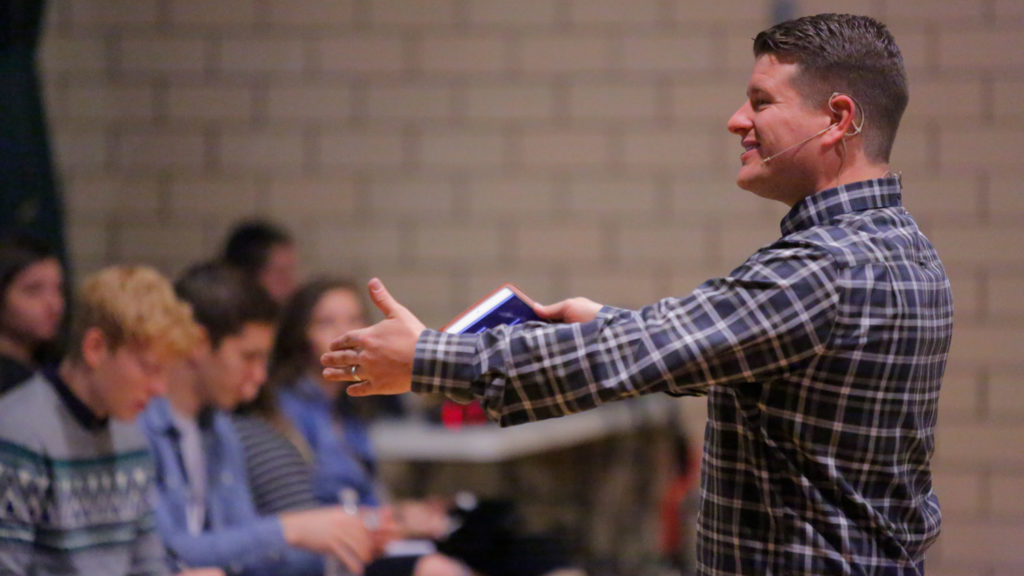I am absolutely convinced that there has never been a genuine missional movement—the kind that has both exponential growth as well as transformational impact across a wide domain—that does not have APEST ministry. APEST, which stands for Apostle, Prophet, Evangelist, Shepherd and Teacher, comes from Ephesians 4, and I strongly believe movements need all five APEST functions active and engaged in order to make any lasting impact for the cause of Jesus. Below is a description of the Teacher component of the APEST model.
The Teacher
The care giver, social cement, humanizer
The teaching function has roots in the scriptural tradition, but came to prominence in Israel’s exile as the people of God had to cultivate a distinctive worldview in a hostile context—hence the role of the rabbi by the time of Jesus. Other than that, its roots are in Israel’s wisdom literature, whereby people were schooled in seeing the world through the eyes of faith.
The teaching functions of the church are as follows:
• Wisdom and understanding. At its core, the teaching function is focused on acquiring wisdom and understanding in the community of God’s people. This is achieved partly by cultivating a culture of curiosity and the pursuit of insight and learning, as well as through the interpretation and explanation of the Scriptures. In the New Testament, the church is meant to be its own seminary and is directly responsible for the teaching function.
• Worldview formation and maintenance. Christianity has a distinctive “take” on the world. There is such a thing as a biblical mind. It means seeing the world as God sees it, as described in the Scriptures. One of the key purposes of teaching is the development of a philosophy congruent to Scripture and workable in life.
• Cultivating a love of the Scriptures. The Scriptures are complex and rich documents that reveal its beauty to devoted and loving study. The teaching function seeks to reveal the beauty to all within the church.
• Theological discourse. One of the key aspects of the teaching function is to ensure ongoing theo-logos (God-talk) through engagement with the primary texts of the movement among all the members of the community.
• Development of resources for learning. A critical aspect of the teaching function is to communicate ideas through the various media at hand. This also involves developing useful tools, writings, liturgies and practices that can embody ideas.
• Integration of life and thinking: Good teaching not only informs, but it forms people in an ethos. For theology to be truly grasped, it must be lived. We must become the truth that we seek to convey. The medium must become consistent to its core message. This involves lifelong learning and practice.
• Instruction in the Way. Far from being purely speculative and philosophical, biblical teaching must also help by way of instruction in discipleship. It does this by developing active learning experiences through engagement with God and the world.
• Transmission of ideas. It is very important for the church to be able to transfer its worldview and ideas to individual people, and through them, to different generations and cultures.
• Traditioning. This involves the development of a “tradition” or learning that can be handed down from one generation to another, which creates a legacy of those ideas. The articulation of this tradition is an important aspect of the teaching function.
• Culture of lifelong learning. The teaching functions create a passion for learning within the community. They look to create a culture that values learning, creates pathways for learning and makes learning accessible to all. Because we are never truly done growing and changing, the culture of learning is life-long, as it strongly believes there are ever greater depths of God to be explored.
The role of the teaching person
As we can see, at its core the teaching function is about mediating a particular type of practical wisdom and philosophical understanding nuanced by the biblical worldview. A teacher therefore will be all about helping people gain insight into how God wants them to see and experience their world. As such, it is concerned with theological truth and shaping the consciousness of God’s people to be consistent with that truth.
In many ways, teachers are similar to prophets and apostles in that they deal with ideas that shape life. The difference is that teachers are concerned more about broad comprehension and systematic understanding as opposed to faithfulness to the covenant like the prophet and the nest of more foundational and formative (meta)ideas for which the apostle is the assigned custodian. Teachers often do not have that sense of urgency that drives the apostolic and the prophetic functions.
From a biblical perspective, teaching is not about speculation in and of itself; rather, it is about the ministry of ideas in action—discipleship and formation. Teachers cannot teach what they do not know, and they cannot lead where they will not themselves go. Therefore, biblical teachers must have real participation in the ideas they propose.
This content is an excerpt from Hirsch’s latest book, 5Q: Reactivating the Original Intelligence and Capacity of the Body of Christ. Order the book to learn more about the APEST model.
Published September 12, 2017
